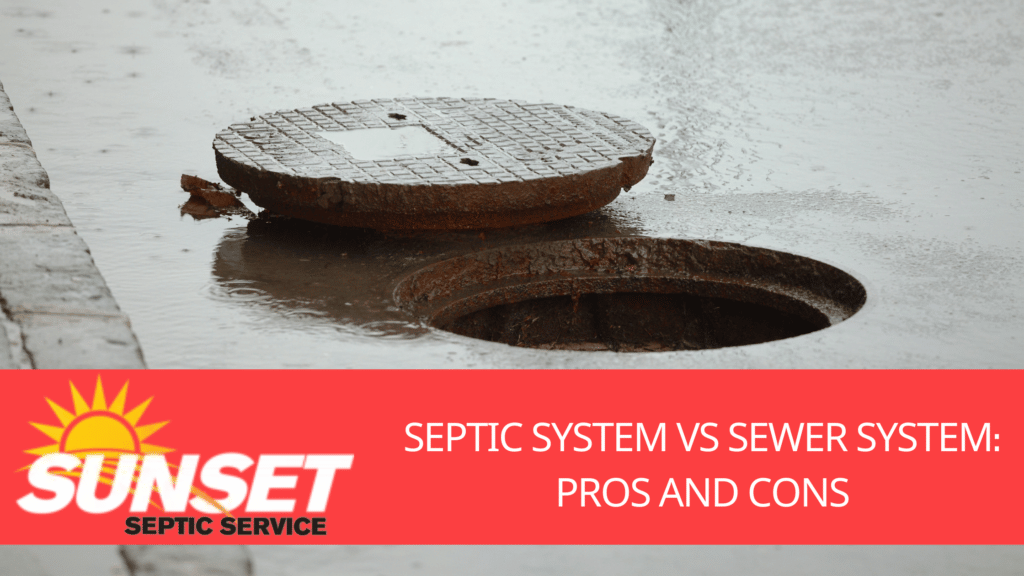There are two basic types of plumbing systems that are commonly used for homes: septic system vs. sewer system. Sewer systems allow waste to travel from the home and into a public sewer, while septic systems are designed to treat waste inside a concrete holding tank. Although these two systems are very similar in design and function, there are still several differences between them.
What is the Difference?
If you’re new to homeownership or you’ve never had to repair your septic tank or sewer line, then you probably aren’t too sure about the differences between a septic system vs sewer system line. Let’s start by taking a look at exactly what each of them is.
Septic Systems
Septic Systems are typically used in rural areas where there are no municipal wastewater treatment systems or where it might be too expensive to install one. A septic system consists of a horizontal pipe buried in a leach field, which contains anaerobic bacteria that break down sewage into solids and liquids. The solids settle in the leach field while the liquid flows into a drain field. The liquid eventually drains away through perforated pipes buried below ground level.
Sewer Systems
A sewer system is designed to transport wastewater from homes and businesses to a treatment facility where it can be treated before being discharged into waterways or lakes. Most municipalities require homeowners to connect their homes to a city sewer system when building new houses, but some homeowners, typically in more rural areas, may have their own septic systems.
Pros & Cons
Sewers are generally more reliable than septic systems because they’re built with large-scale infrastructure and designed by engineers who know how to manage water flow. That means you can expect consistent performance, even during heavy rainfall or periods of high water usage. Sewer systems can be much more affordable than septic systems, but the cost of installing a sewer system can be much higher than installing a septic tank. This is due to the fact that they do not require an additional area of land to be dedicated to them. There are no tanks or leach fields to maintain, so there are fewer maintenance costs overall with sewer systems.
Septic systems, on the other hand, can add value to a property. Although a sewer system may be more affordable than some septic systems, septic systems can be more cost-effective and less expensive than most alternative systems– especially when looking at long-term costs. Yes, there are maintenance fees associated with septic systems, but they generally require fewer repairs (depending on how much usage you get out of it and how well you maintain it). They also don’t require main drainage systems, so they can be installed anywhere a tank can be dug.
The Takeaway: Septic System vs Sewer System
Overall, when deciding between a septic system vs sewer system, individual circumstances and preferences play a large role in deciding which system is favorable. Many homeowners see both systems as having their advantages and disadvantages, but one thing that is certain is that each person will have to make a choice on what is best for them. Sunset Septic Service is here to help with your decision to install a septic system. Contact us today to set up an appointment!




